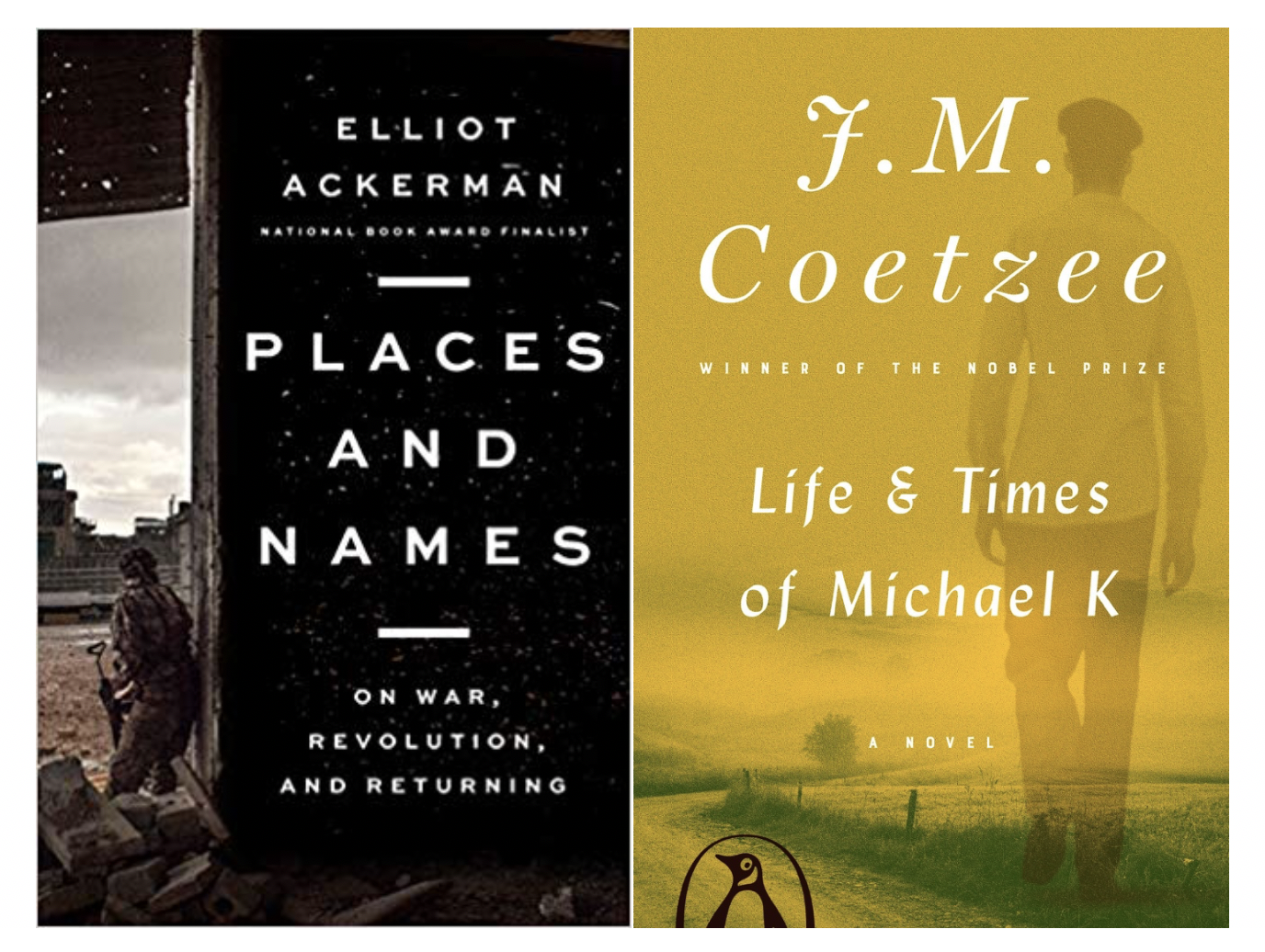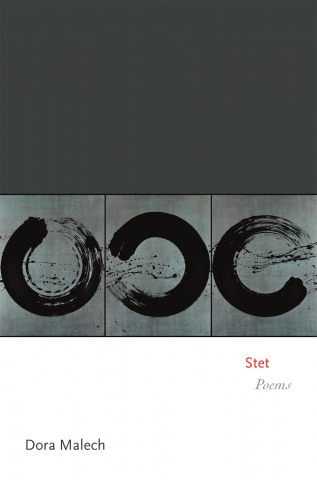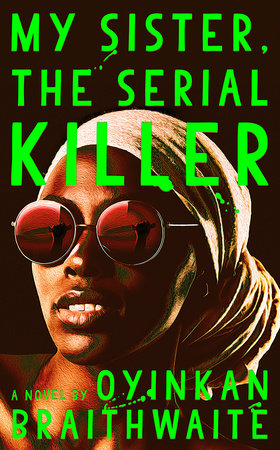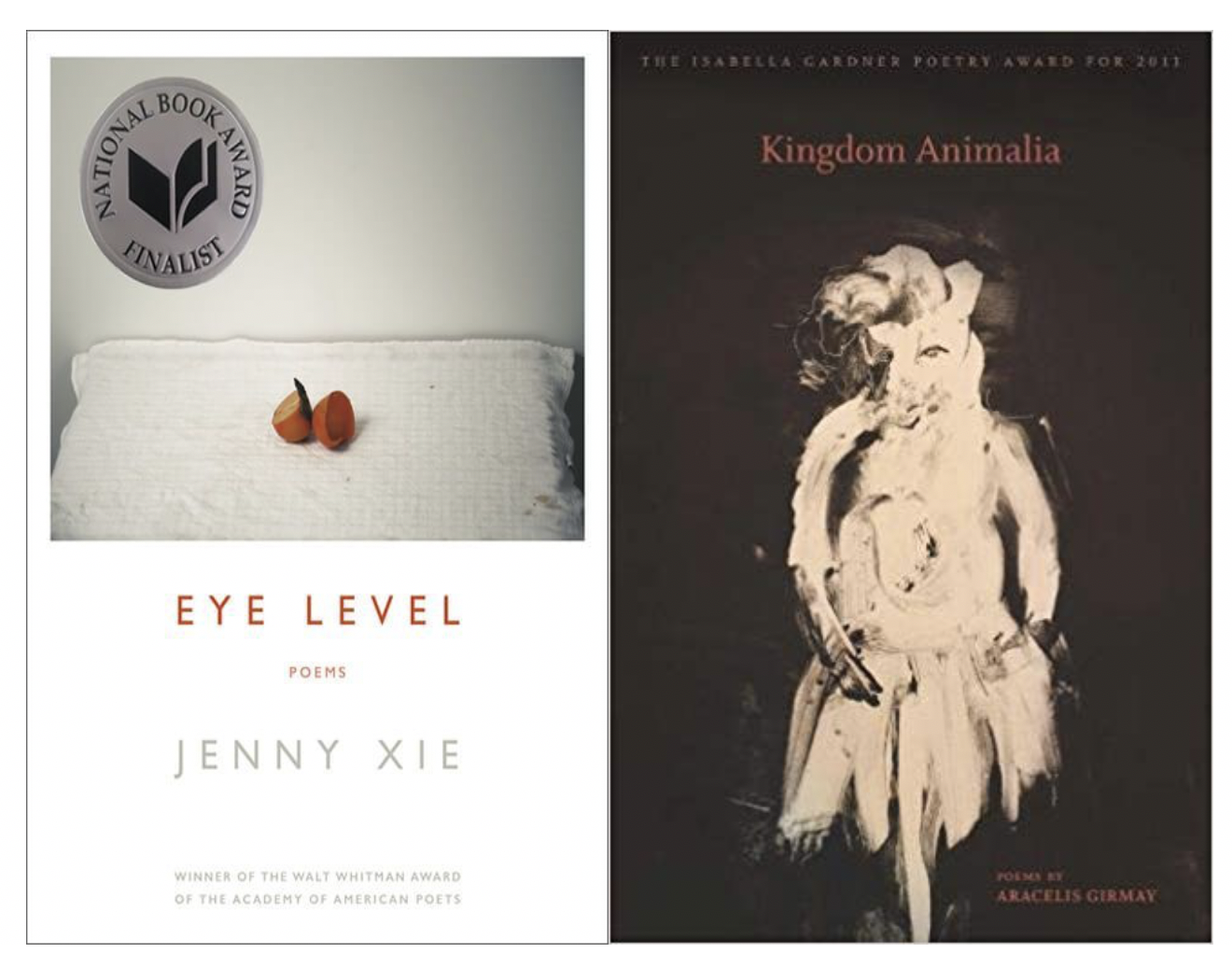With summer near its end and the school year upon us, our staff has suggested some books to take with you over the Labor Day weekend, and beyond.

I'm currently reading Elliot Ackerman's memoir Places and Names. Ackerman, a decorated Marine special operations officer—he was awarded, among other honors, the Silver Star and Bronze Star for valor—returns to Syria a decade after his five tours of duty in Iraq and Afghanistan in order to make some sense of his time there. This reader, only half finished with it, is on the edge of his seat waiting for Ackerman to recount his experiences in the Second Battle of Fallujah while reeling from the catastrophe that is present-day Syria. It is as damning and piercing an investigation of America's forever wars as I've read. It also illuminates why warfare is such a heightened, nearly addictive state of existence for soldiers, and how the bonds they form with their brothers and sisters—even with the enemy—become the most lasting of their lives. The book I just finished, and cannot overpraise, is J. M. Coetzee's The Life & Times of Michael K. Set in South Africa during a fictitious civil war, the title character is a gardener, born with a cleft palate, who is asked by his dying mother to return her from Cape Town, where she has worked as a house servant all her life, to her home in Prince Albert. During the journey, Michael tends his own inner life and grows it into something extraordinary. As a meditation on freedom and dignity in dark times, I know of no book that rivals it. It's one of the most uplifting novels I've read in years.
—Adam Ross, Editor

What better way to spend Labor Day weekend than with visions of the French Riviera in your head? This debut by a then eighteen-year-old Sagan chronicles a summer in the lives of seventeen-year-old Cecile; her depraved, debaucherous father, Raymond; and Anne, Raymond’s fiancé and the woman at the center of Cecile’s existential dread. Written from Cecile’s perspective, Sagan’s prose is rich with wit and candor—perhaps aided by the fact it is a story of a teenager by a teenager. The author is just as convincing when she conjures the glamour of the Riviera itself, with a plot where gambling, sex, and suicide ensue. Bonjour Tristesse reads as a perverse fairy tale or a wicked morality tale. Cecile is both a young woman on the brink of adulthood as well as a scared, precocious child devoid of any moral direction. We watch in horror as our would-be heroine spirals into the lion’s den or witch's house of this love triangle. She emerges from the experience unable to shake the feeling that her life has been considerably altered. As fun as it is dark, the novel was made into an overlooked and underrated feature film in 1958, directed by Otto Preminger and starring a pre-Breathless Jean Seberg and David Niven.
— Jennie Vite, Editorial Assistant

My pick is Dora Malech’s Stet, a smart, at times pyrotechnic collection—she structures many of her lines with anagram—that is, like all great poetry, a joy to read aloud. At issue here is language, our favored social system, bodied forth from the kind of mind we all have, prone to gaps and certain feats of telekinesis. Here’s a sample from “AS[ ]K”:
Spit me
to shine.
Moot emesis.
Wept rust me.
Get in.
Sometimes we step into something true.
Mind-tightening, margin-busting stuff, this. At times, the collection may seem like little more than crossword puzzling, but Malech’s poetry is so rife with intellectual disclosures, guilt, and revelation that its exercises prove themselves to be more than architectural. The book gets at the essential difficulty and wonder of living, feeling, and thinking in our world of words: “Start anew, lifeless. / Start a new life, less.”
— Spencer Hupp, Assistant Editor

Oyinkan Braithwaite’s dark, funny, and tender debut novel My Sister, The Serial Killer is comprised of short-short, controlled, page-turning chapters. It plunges the reader into violence from start with Korede, a head nurse at St. Peter’s hospital in Lagos and older sister to the sociopathic, femme fatale Ayoola, systematically cleaning up the murder scene of the newest victim, Femi: “Femi makes three, you know. Three and they label you a serial killer.” When Ayoola begins a relationship with Dr. Tade Otumu, Korede’s co-worker and man-she’s-been-hopelessly-pining-after, complications arise. Narrated by Korede, the novel’s prose—clipped and rhythmic—moves the plot along, while its conspiratorial, confessional, and strangely charming tone keeps you invested in Korede’s grappling with just how much more she’s willing to sacrifice to protect her sister. But the book exceeds its pulpy, crime novel undertones; the story is also about a late bloomer’s coming of age in a society that insists women are fodder: “Girls are to men,” observes Korede, “what plankton is to a whale.” Women, here, are expendable, a fact painfully established for the sisters by their abusive father and reified by unscrupulous men in power: the chiefs, policemen, and politicians of Lagos. In this uninhabitable chaos, Korede meticulously cleans and organizes not only to save her sister but also herself, trying desperately to unpack her childhood traumas to make a home in the world.
—Hellen Wainaina, Assistant Editor

I’m a day away from leaving for vacation and a few days away from the end of #TheSealeyChallenge (the poet Nicole Sealey came up with the idea: read thirty-one books of poetry in thirty-one days). I’ve worked my way down the stack to the last two: Jenny Xie’s Eye Level and Aracelis Girmay’s Kingdom Animalia. Being superstitious, I’ve not read past the first poem of either book. But I’m grateful for their conversation, the one I eavesdrop on as I double-check my bags stacked near the door: “I’ve been told, today, to consider this / as I ride the long tracks out & dream so good” Girmay says; “Me?” Xie replies, “I’m just here in my traveler’s clothes, trying on each passing town for size.” I’m already looking forward to the names of towns that line I-16—Adabelle, Nevils, Black Creek, and Eden—and every other elsewhere these poems go.
—Eric Smith, Managing Editor
Of course, we also highly recommend the Review’s latest issue, Summer 2019, which is peculiarly populated by creatures domestic, wild, and metaphorical (read all about it in our editor’s note). Summer’s almost over, but there’s still time to subscribe!
